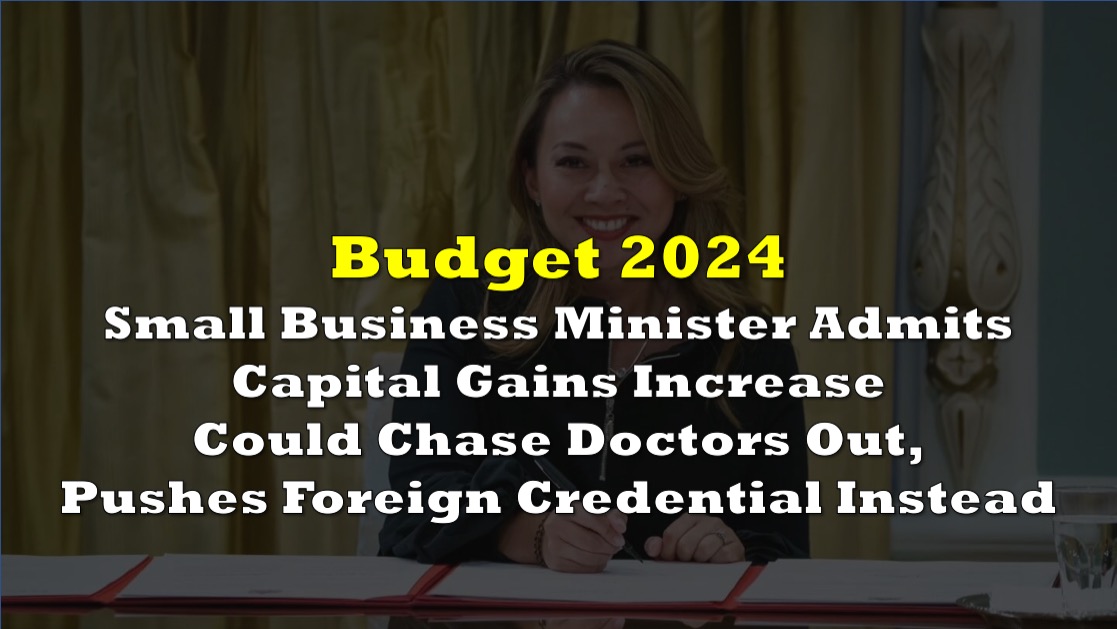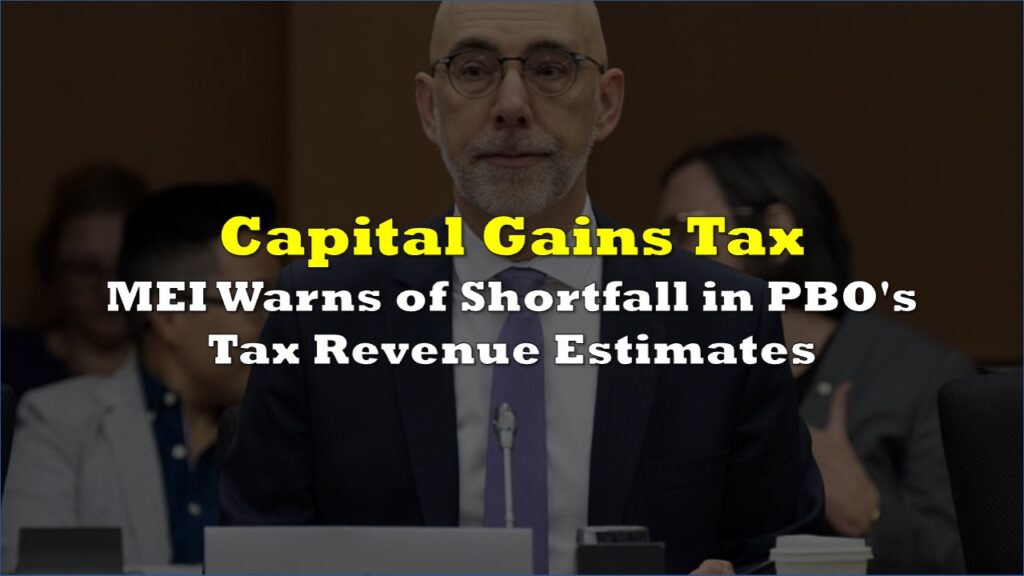In a recent interview on Power & Politics with David Cochrane, Minister of Small Business Rechie Valdez stirred controversy with her remarks regarding the potential impact of capital gains increases on the retention of family doctors in Canada.
When questioned about the possible consequences of such increases on the healthcare sector, particularly family doctors, Minister Valdez acknowledged the concern, stating, “We recognize that. But one of the things we will continue to do is to encourage foreign credential recognition.”
Foreign credential recognition in Canada refers to the process of assessing and validating educational and professional credentials obtained outside of Canada to determine their equivalence to Canadian standards. This process is essential for immigrants who wish to work in regulated professions or occupations in Canada.
Highlighting the government’s efforts to address labor challenges in the healthcare industry exacerbated by the pandemic, Valdez emphasized ongoing investments in recognizing foreign credentials. She reassured that the government remains committed to attracting talent from abroad to meet the country’s healthcare needs.
It is worth noting that Valdez, elected to the House of Commons in 2021 representing Mississauga—Streetsville, is recognized as the first Filipino-Canadian woman to be elected as a Member of Parliament.
However, her comments received sharp criticism from various quarters. Journalist Alan Fryer took to social media platform X to express sarcasm, noting, “Incredible. Minister admits capital gains increases could cause family doctors to leave Canada. Not to worry, though, she says, we’ll just bring in more foreign trained docs.”
David Jacobs, President of the Ontario Association of Radiologists, voiced skepticism about the feasibility of the proposed strategy, stating, “A plan to chase doctors out of Canada and replace them with physicians from other countries assumes that there are an abundance of doctors ready to come to Canada, and that they are equivalently trained. Neither of these assumptions is correct.”
A plan to chase doctors out of Canada and replace them with physicians from other countries assumes that there are an abundance of doctors ready to come to Canada, and that they are equivalently trained.
— David Jacobs (@DrJacobsRad) April 24, 2024
Neither of these assumptions is correct.#Cdnpoli pic.twitter.com/Jy33Zg0DZM
Journalist Matt Gurney echoed similar sentiments, raising concerns about the Minister’s response. He pointed out the inadequacy of relying solely on recruiting foreign doctors to offset potential losses, given the broader implications of tax changes on the attractiveness of Canada as a destination for healthcare professionals.
Gurney emphasized the need for a comprehensive approach to address the underlying issues affecting the healthcare sector, beyond simplistic solutions that overlook the broader economic ramifications.
“The minister is acknowledging that the tax change may drive doctors out, without acknowledging that it will also change the economic calculus of those we wish to recruit in order to offset the loss,” he wrote.
The minister is acknowledging that the tax change may drive doctors out, without acknowledging that it will also change the economic calculus of those we wish to recruit in order to offset the loss.
— Matt Gurney (@mattgurney) April 24, 2024
I mean, okay. I accept that! Thanks to the minister for the clarity.
A centerpiece of 2024 federal budget is a pivotal shift in taxation strategy, as the government introduces a new revenue source targeting Canada’s highest earners. The plan involves raising taxes on capital gains, projected to generate a substantial $19.3 billion over the next five years.
This tax adjustment, while not resembling the anticipated wealth or excess profit taxes, zeroes in on the wealthiest 0.13% of Canadians. Under this change, the capital gains inclusion rate – the portion of capital gains subject to tax – will rise from one-half to two-thirds for individuals with capital gains exceeding $250,000 annually.
The new rate will also apply to capital gains realized by corporations and trusts, impacting roughly 12% of Canada’s corporations. The implementation of this tax alteration will commence for capital gains realized on June 25, 2024.
In a bid to reassure the middle class, the Liberals emphasize that this change will not affect 99.87% of Canadians, aligning with their pledge not to increase taxes on this demographic. Freeland contends that this adjustment won’t undermine Canada’s business competitiveness, pointing out that most other countries subject corporations to corporate income tax on 100% of their capital gains.
Information for this briefing was found via the sources mentioned. The author has no securities or affiliations related to this organization. Not a recommendation to buy or sell. Always do additional research and consult a professional before purchasing a security. The author holds no licenses.










One Response
Absolutely clueless. How do they come up with this figure of only affecting 0.13 per cent? It is completely false.
It will affect anyone participating in inheriting an estate in excess of $250,000, which I believe is probably more like half the population.
Of course, these dummies probably don’t even recognize that.
In any case, this is one more nail in the coffin for Canada’s middle class. Any young, ambitious person who has the opportunity to move probably will look seriously at doing so.